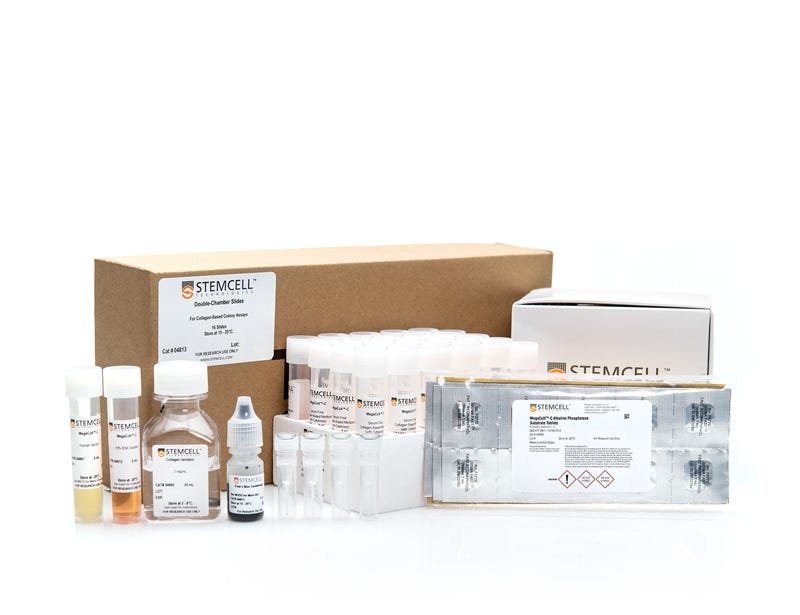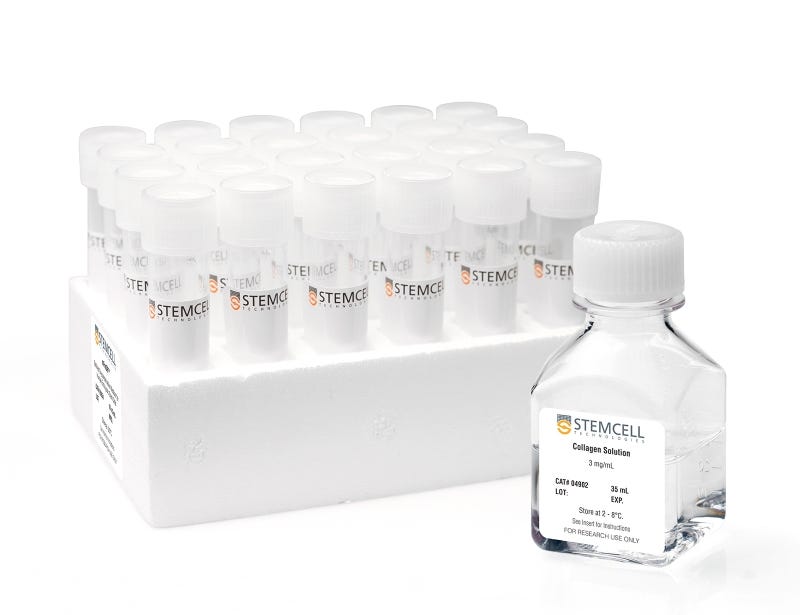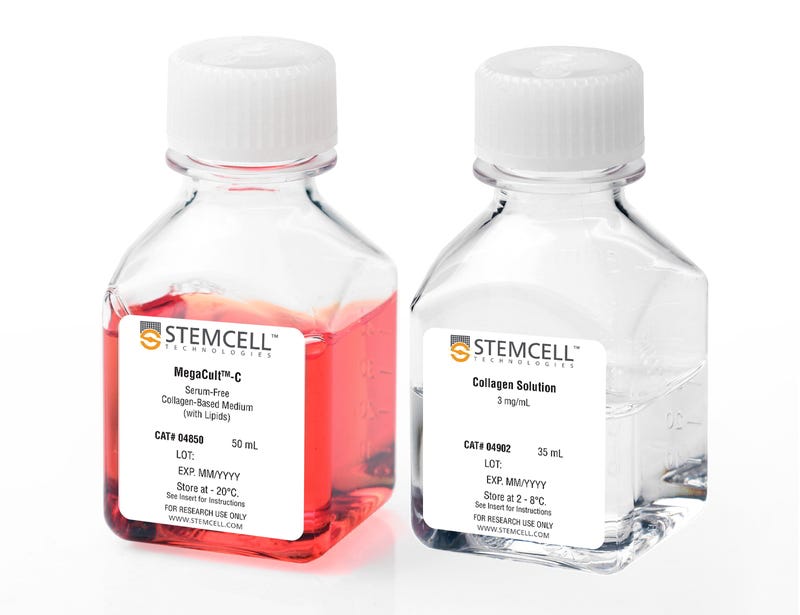MegaCult™ - Colony Assays of Megakaryocyte Progenitors (CFU-Mk)
MegaCult™ Media for CFU-Mk Assays
Collagen-Based Medium for Colony Assays of Megakaryocyte Progenitors
MegaCult™-C is a collagen-based culture system for colony-forming unit (CFU) assays of megakaryocyte progenitors (CFU-Mk) from human or mouse hematopoietic tissues.1 Megakaryocyte colonies are difficult to detect by morphological criteria alone as colonies may contain as few as three cells and megakaryocytes cannot be easily distinguished morphologically from other cell lineages, particularly macrophages. Unlike methylcellulose-based media used in CFU assays for other lineages, collagen gels used in MegaCult™ can be readily dehydrated for subsequent cytochemical or immunocytochemical staining. Human CFU-Mk colony detection in MegaCult™ is based on immunocytochemical staining for the megakaryocyte marker CD41, while mouse colony detection is based on acetylcholinesterase activity.
MegaCult™ medium is available in formats with or without cytokines or added lipids. MegaCult™ media with cytokines contain recombinant human (rh) IL-3, IL-6 and TPO for optimal growth of human CFU-Mk. MegaCult™ media without cytokines is recommended for applications where control over the types and amounts of cytokines to use is important, for example for investigation of factors influencing the growth and maturation of megakaryocytic progenitor cells. MegaCult™-C media without cytokines is also used for the culture and enumeration of mouse CFU-Mk after addition of appropriate cytokines, such as recombinant mouse IL-3, rhIL-6, rhIL-11, rhTPO and/or other factors, chosen by the user.
Data
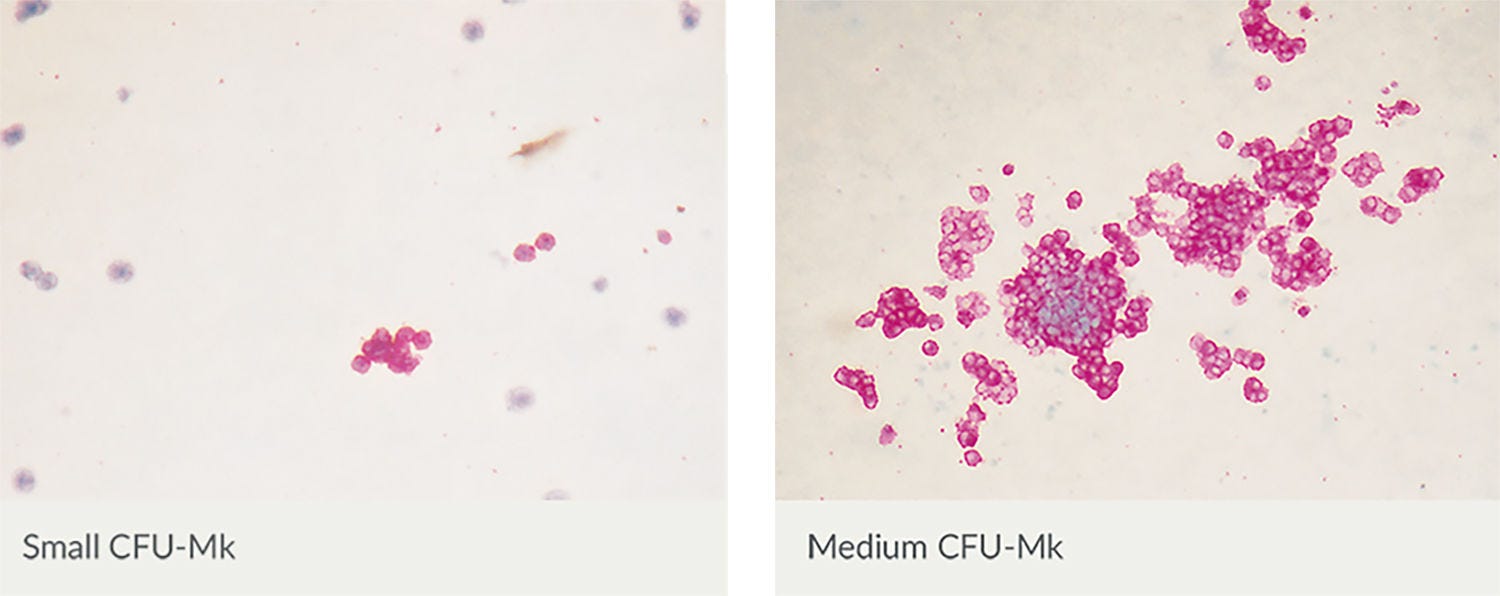
Figure 1. Examples of Small and Medium Sized CFU-Mk Colonies Derived From Human Megakaryocyte Progenitors
Protocol
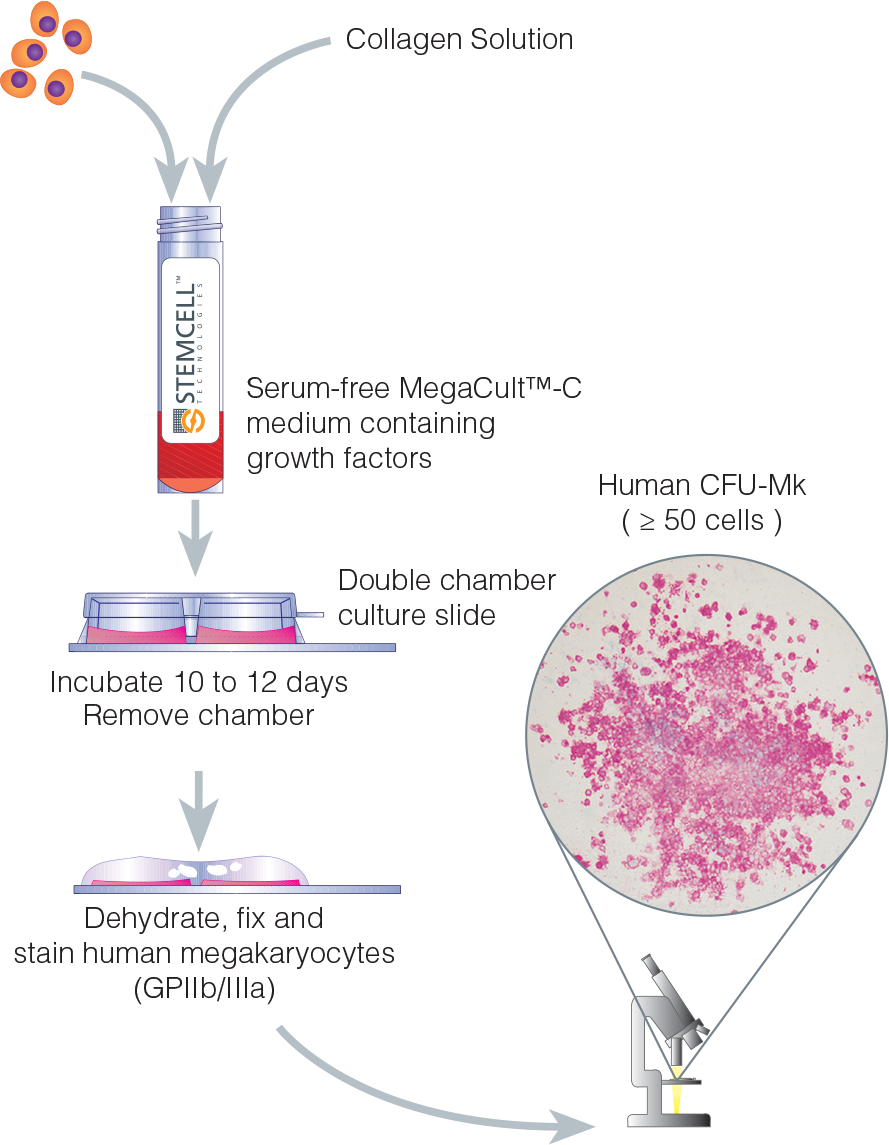
Figure 2. Procedure for Assays of Human Megakaryocyte Progenitors
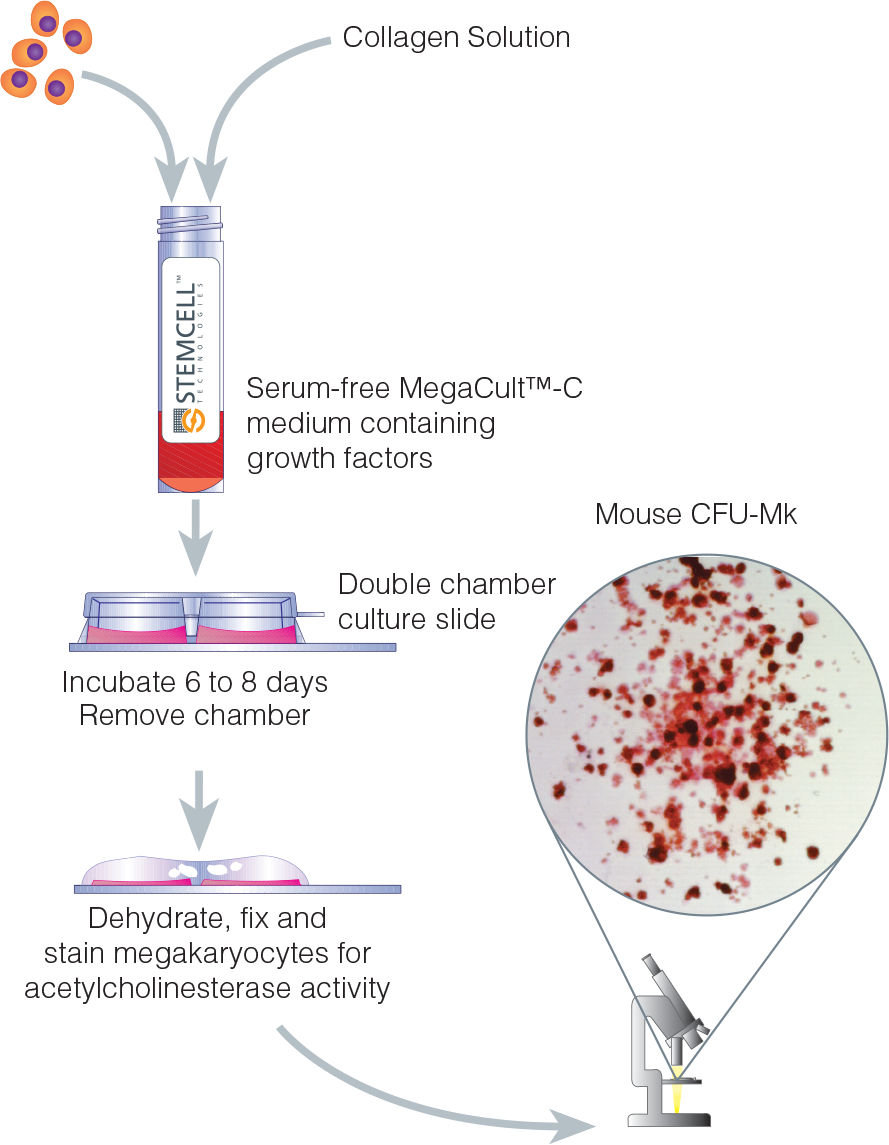
Figure 3. Procedure for Assays of Mouse Megakaryocyte Progenitors
Key Applications
Drug Toxicity Testing
Transplantation and Engraftment Kinetics of Human HSPCs
Pirson L et al. (2006) Despite inhibition of hematopoietic progenitor cell growth in vitro, the tyrosine kinase inhibitor imatinib does not impair engraftment of human CD133+ cells into NOD/SCIDbeta2mNull mice.Stem Cells 24(7): 1814-1821
Megakaryocyte Biology
Boyer L et al. (2008) Increased production of megakaryocytes near purity from cord blood CD34+ cells using a short two-phase culture system. J Immunol Methods 332(1-2): 82-91
Vodyanik M et al. (2006) Leukosialin (CD43) defines hematopoietic progenitors in human embryonic stem cell differentiation cultures. Blood 108(6): 2095-2105821
HSPC Biology
Migliaccio A et al. (2003) GATA-1 as a regulator of mast cell differentiation revealed by the phenotype of the GATA-1low mouse mutant. J Exp Med 197(3): 281-296
Ito C et al. (2003) Hematopoietic stem cell and progenitor defects in Sca-1/Ly-6A-null mice.
Blood 101(2): 517-523
Wang Y et al. (2011) Fine-tuning p53 activity through C-terminal modification significantly contributes to HSC homeostasis and mouse radiosensitivity. Genes Dev 25(13): 1426-1438
Lannutti B et al. (2008) Incomplete restoration of Mpl expression in the mpl-/- mouse produces partial correction of the stem cell repopulating defect and paradoxical thrombocytosis. Blood 113(8): 1778-1785
Hisa T et al. (2004) Hematopoietic, angiogenic and eye defects in Meis1 mutant animals. EMBO J 23(2): 450-459
Xing S et al. (2008) Transgenic expression of JAK2V617F causes myeloproliferative disorders in mice. Blood 111(10): 5109-5117
Wernig G et al. (2006) Expression of Jak2V617F causes a polycythemia vera-like disease with associated myelofibrosis in a murine bone marrow transplant model. Blood 107(11): 4274-4281
Moody J et al. (2004) Anemia, thrombocytopenia, leukocytosis, extramedullary hematopoiesis, and impaired progenitor function in Pten+/-SHIP-/- mice: a novel model of myelodysplasia. Blood 103(12): 4503-4510
References
- Hogge D et al. (1997) Quantitation and characterization of human megakaryocyte colony-forming cells using a standardized serum-free agarose assay. Br J Hematol. 96(4): 790-800.
